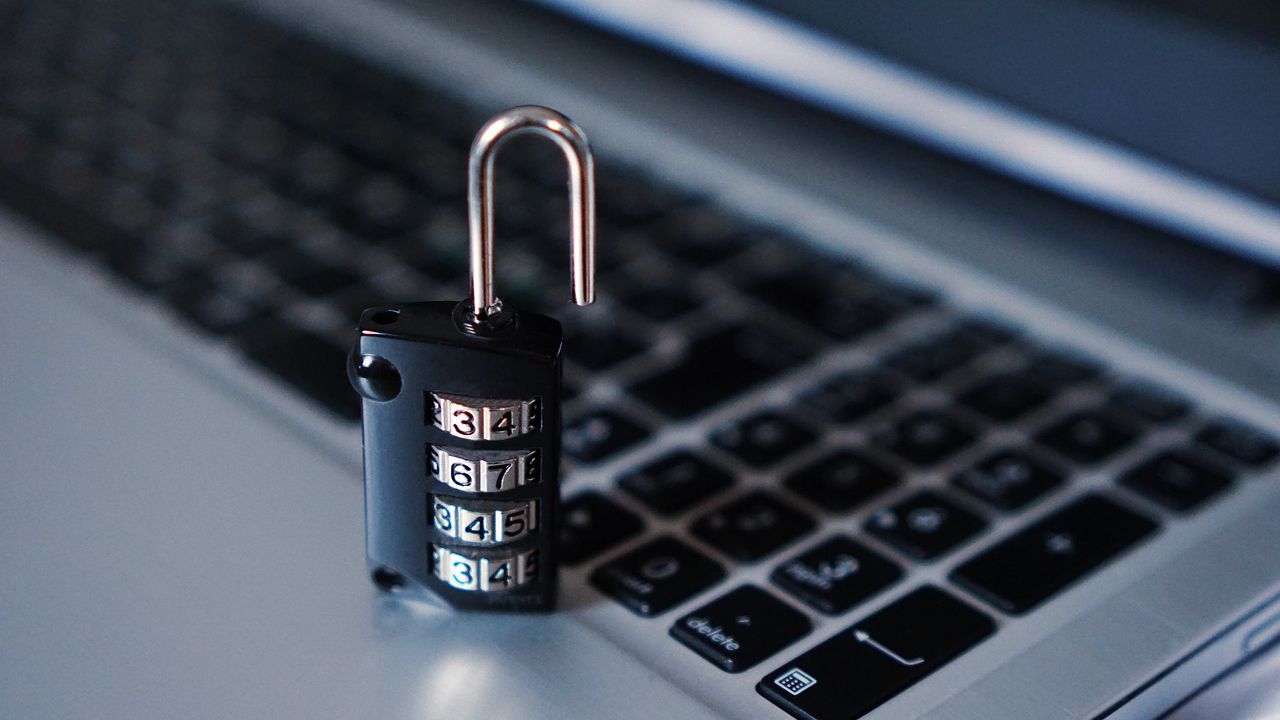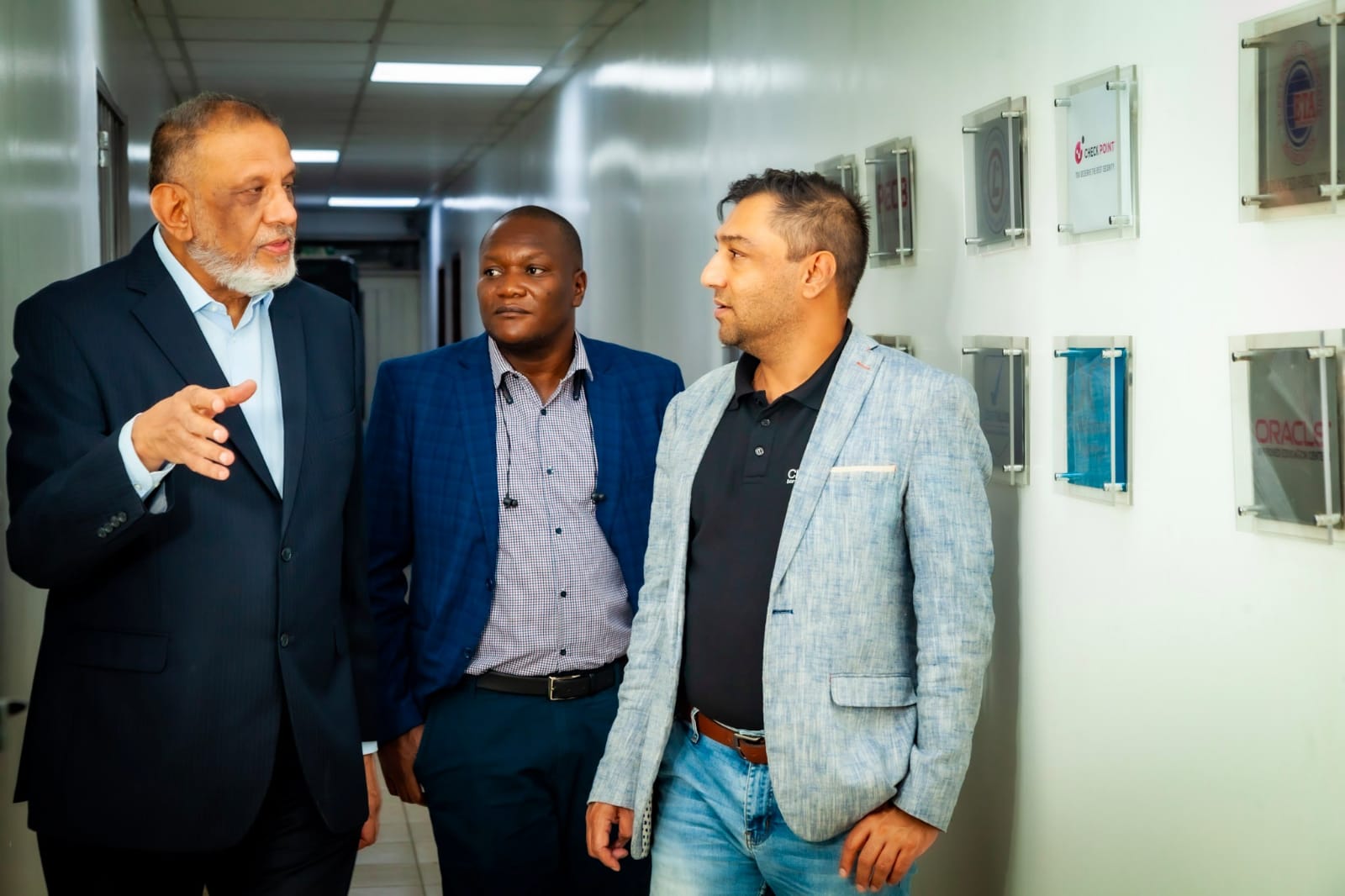advertisement
CLC Africa, Check Point Sign Cyber Training Partnership

Computer Learning Centre (CLC) Africa, and Check Point, have announced their training partnership bringing together Aunally Maloo, the Group CEO, and Pankaj Bhula, Regional Director, Africa from Check Point Software Technologies Limited.
“There is always demand for training in cybersecurity, That is where the world is going,” stated Bhula. While the world opens lethargically and suddenly all at once, there is no denying that thanks to COVID, people no longer travel as much. That hasn’t stopped Computer Learning Centre (CLC) Africa from training. However, this has not been without its challenges considering CLC’s virtual classes, key among them being connectivity. It is all designed to address the skills gap and bridge the knowledge divide.
Maloo said “We have been here for three years. The tech may have changed over the years. Imagine looking at cloud, cybersecurity and digitalisation. And the last couple of years we have had vendors such as AWS and Check Point coming in. Now, most of the training is on the cloud. More and more people are using devices to connect especially at home. We believe that the need for security will grow, And people are looking for platforms that can provide those skills.”
advertisement

The cybersecurity industry is worth $11billion worldwide. Africa accounts for about $2billion of this. Keep in mind Africa experiences 3X more cyberthreats than anywhere else in the world. The partners stress this is fundamentally, and at the end of it, always about one thing – knowledge. That, and the huge market and demand, which walks alongside skill shortage.
The reality is, the demand on the internet is higher than it was two or three years ago. With more people and more potential for criminal breaching, more education is required, hence the partnership. We do have the advantage of learning from more developed states. And, there is a growing middle class in Africa who engage with digital transformation faster probably because they are using technology more.
advertisement
This makes South Africa, Nigeria, Ghana, and Kenya with their improved connectivity ripe for cyber plucking. This is especially critical when you pay attention to data. Its increasing value cannot be underestimated. If it falls in the wrong hands, only God knows what would happen, aside from selling it and making money. That is what cybersecurity protects.
How then, does one protect themselves?
“This is why we need partners,” Bhula says. “Our primary duty as vendors is to teach corporates. We deal with large enterprises to help them protect themselves and their employees, and some of them will want to offer it to the consumers.”
advertisement

Ideally, when trying to reach a consumer, Check Point would be reliant on a broader ecosystem. For instance, it is possible to approach banks, or say, Safaricom, and ask them to embed this technology in their technology and give it to the consumer as a secured product.
Having just released the Check Point Cybersecurity Report 2021, Bhula said there are trends that will not be going away anytime soon, one of them being working from home and working from anywhere. It means cybersecurity and its practitioners are not going away anytime soon.
“Gone are the days of people traveling to the office and sitting behind the brick wall and being protected by that. Or banks being connected to the network, and installing security at that level. People are logging in from anywhere, and everywhere even on their home devices, or use their partners’ or children’s devices to log onto the office network which can compromise them. That WFH trend is not going to stop. 70 per cent of the workforce will be working from home, 90 per cent of those will be breached in some way or form on their mobile device.”
Another trend is everyone moving to the cloud. “You will see a lot of that. What we are picking up in Africa is that some of the citizenship services supplied by governments may become targets. Hackers will not target you as an individual, but they will be targeting governments. If they bring governments to their knees, around the supply of water or electricity, you can imagine the damage.”
It is abundantly clear businesses will not disclose if they are hacked. To this, Bhula said, “There are two kinds of companies. Companies that are hacked and do something about it, or companies that are hacked and don’t even know.”